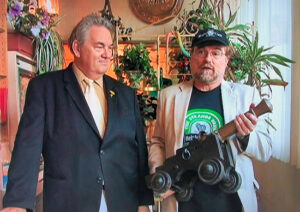William H. Patterson, Jr. — Bill to his friends — was an expert on the works of Robert A. Heinlein, publisher of The Heinlein Journal, Founding President of the Heinlein Society, and author of the two-volume Heinlein biography published in 2010 and 2014 with the estate’s blessing.
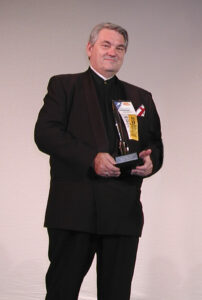
Bill Patterson, author of the two-volume biography of Robert A. Heinlein, accepts the Retro Hugo on behalf of Heinlein, in 2001.
Bill was born October 28, 1951, in St. Louis, MO. The Patterson family would live in Indianapolis, IN, and later in Phoenix, AZ, where he became heavily involved in Phoenix SF fandom, joining a local SF club and the local chapter of the Tolkien Club. He attended Arizona State University for two years, majoring in history, and helped organize the 36th Annual World Science Fiction Convention, IguanaCon II, in Phoenix in 1978. “Everyone was impressed with Bill’s publications for the bid and the 1978 Worldcon,” recalled Mike Glyer. “They looked super professional, the text prepared with a IBM compositor at a time when the rest of us were using typewriters.”
Bill moved to San Francisco shortly thereafter, and he later founded The Heinlein Journal in 1997 and cofounded the Heinlein Society in 1998.
“I had been thinking about doing a Heinlein-related magazine for a few years, but I was not certain that there would be enough material to support a regular publication schedule,” Bill recalled in 2005. “I could always write filler, but I didnʼt have any interest in doing a fanzine. Dr. Leon Stover encouraged me and suggested it should not be called ‘World As Myth.’ He suggested the newsletter of the H.G. Wells Society as a model. I had something a little more substantial in mind and brought out the first issue of The Heinlein Journal in time for Heinleinʼs 90th birthday.”
From its beginning in 1997, the Journal was home to the work of the best-known names in Heinlein scholarship, including Leon Stover, Ph.D; James Gifford; Robert James, Ph.D; Farah Mendlessohn; Robert Gorsch, Ph.D; Edward Wysocki, Ph.D; and, of course, Patterson himself.
“For some time, he published Quodlibet, a stuffy, personal fanzine of fabulous pronouncements, from cookery (the only proper temperature to cook a hamburger is evidently well done to the point of overdone) to the angle of Bill’s splay-footed stance,” wrote Dafydd ab Hugh in a remembrance. “He cultivated the useful habit of responding to letters to the editor (himself) directly after the reader’s complaint, which vastly facilitated Bill in winning the argument.”
In 2000 Bill won the Cabell Prize for his essay “The Heir of James Branch Cabell: The Biography of the Biography of the Life of Manuel (A Comedy of Inheritances)”. In 2001 he accepted the Retro Hugo on behalf of Robert A. Heinlein for Farmer in the Sky.
After Virginia Heinlein died in 2003, the Heinlein Prize Trust named Bill as the Trust’s official Heinlein Scholar. He traveled regularly to the University of California’s Santa Cruz campus to delve into the Heinlein special collection housed there, where he mined the papers, letter, notes, manuscripts, and photos accumulated by the Heinleins and donated to the school in 2003. He estimated there were 75 million words of Heinlein material in the repository.
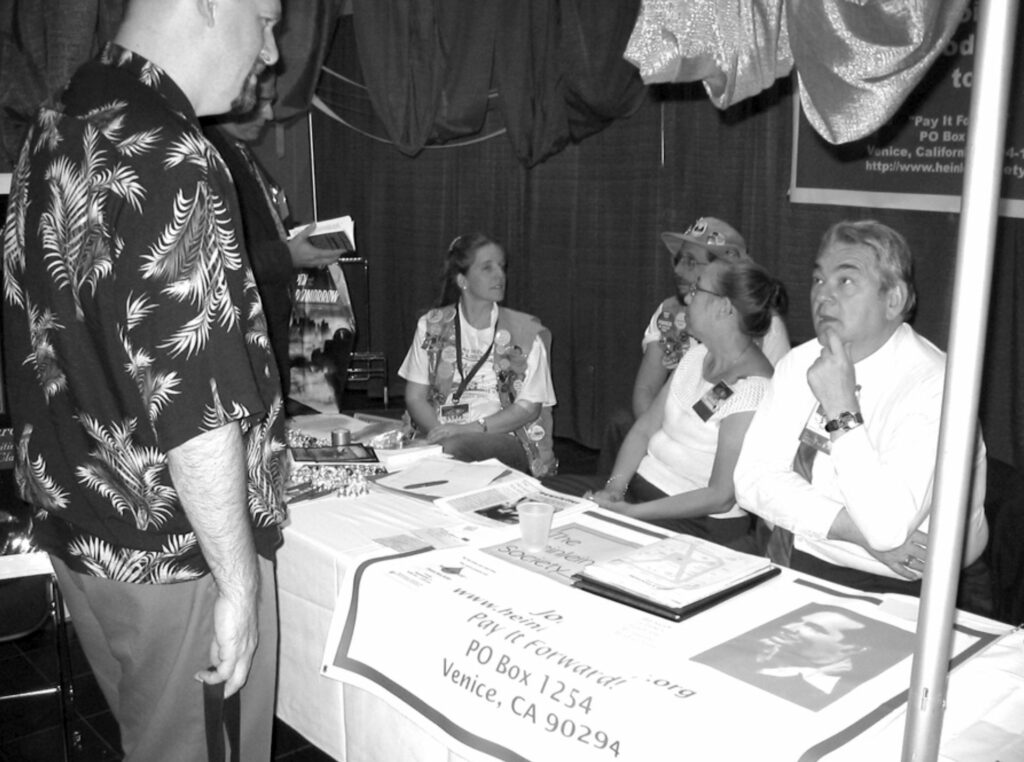
Robert James (standing) talks with Bill Patterson (seated) at the Heinlein Society table at Noreascon IV, with Alan Milner, Mike and Sharon Sheffield, Pam Somers in background.
Bill worked as a legal assistant for many years in San Francisco. But his passion perhaps never shone more brightly than when digging deep into the works of his favorite authors. “When he was doing the research, his utter joy at finding and sharing new information was the most infectiously happy thing about him,” remembered Robert James. “I still recall when he found the contract between Heinlein and L. Ron Hubbard to rewrite For Us, the Living. Also, there’s supposed to be a full letter from Cat Sang in the 2nd volume [of the biography], where she describes at great length the conversation she had with Heinlein about why he and Leslyn broke up.”
Bill was the author of three books on Heinlein, including the The Martian Named Smith: Critical Perspectives on Robert Heinlein’s Stranger in a Strange Land with Andrew Thornton. He was chosen by Heinlein’s widow, Virginia, to write the authorized biography after RAH’s death. Over a decade of research, writing, and editing culminated in the books Robert A. Heinlein: In Dialogue With His Century, Vol. 1 (1907–1948): Learning Curve, and Robert A. Heinlein: In Dialogue With His Century, Vol. 2 (1948–1988): The Man Who Learned Better.
He also worked on the Virginia Edition, definitive versions of Heinlein’s work, by locating manuscripts, doing substantial editing, and writing extensive endnotes. He helped organize the Heinlein Centennial, a convention held on what would have been RAH’s 100th birthday, held in Kansas City, MO, in 2007.
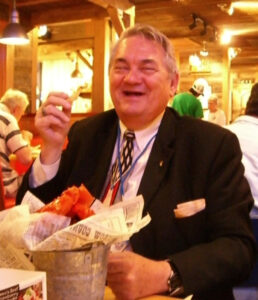 Bill’s other passions included food and music. He worked as a chef at one point, recalled Robert James. “He used to love to talk about going blackberrying as a boy in Missouri — the Huck Finn aspects of his childhood.”
Bill’s other passions included food and music. He worked as a chef at one point, recalled Robert James. “He used to love to talk about going blackberrying as a boy in Missouri — the Huck Finn aspects of his childhood.”
Recalled Tim Kyger: “He made the perfect cup of coffee. Perfect. He was an incredible cook. This might not have anything to do with Heinlein scholarship but I tell you three times: a Patterson-prepared meal was a treat.”
“Bill had an intimate and encylopaedic knowledge of every pastry parlor, sweetshop, and cakery in San Francisco, including exotic tooth-decayers of Chinese, Japanese, Javanese, Crimean, Ethiopian, and extraterrestrial origin,” said Dafydd ab Hugh. “Had Bill been teleported to the backwoods of Barsoom, within eight minutes he would have located the nearest sushi bar.”
Bill’s sister, D. Rhonda Wallace, commented online: “He lived his life to the fullest and the way he wanted. That is all anyone could ask for! (He did it his way).”
And he always did it in style! “He was always impeccably dressed in a suit and tie,” remembered Robert James.
Bill died on April 22, 2014. THS’s Geo Rule wrote at the time: “His role in the Heinlein world can never be replaced, and yet the responsibility of his friends and colleagues is to do our best to carry on his proud legacy of Heinlein scholarship.”
Bill Patterson’s family donated his Heinlein-related papers to the Society, and granted permission to continue to distribute and produce THJ. After a hiatus, the Journal resumed publishing in 2019.
More remembrances:
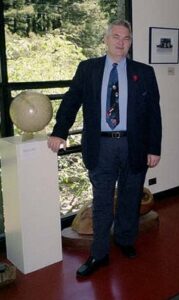 “Those of us for whom Robert Heinlein was a lifelong inspiration owe [Bill] a debt of gratitude that can never be repaid.”
“Those of us for whom Robert Heinlein was a lifelong inspiration owe [Bill] a debt of gratitude that can never be repaid.”
– Jack Kelly
“Bill would always elevate any conversation to a stimulating intellectual level. You could ask him if he wanted to go for pizza and get a lecture on the chemical response of cheese to broiling.”
– Peter Scott
“I first met Bill in 1974 and for some reason we immediately became fast friends. He was my friend for 40 years. He was a stalwart, good, close, loyal, loving friend. He was, as his friends would say, full of ‘Billitude,’ but we loved him anyway. I was emailing him from work on Tuesday before his death and we were talking about — what else? — Heinlein. It is cliché to say, but my life is now infinitely poorer for his loss.”
– Tim Kyger
“I have no clue how Bill could faithfully reproduce (or recreate) so many conversations, confrontations, and consternations; either he had a phonographic and monochromatic memory, or the FBI bumped into Bill at the WorldCon, wiretapped him, then sent him a handy transcript for his memoirs.”
– Dafydd ab Hugh
“One of my favorite stories is about his political leanings: Bill always described himself as an anarchist libertarian, which always amused me because he was always dressed to the nines. When I’d ask about that, he’d say, ‘Camouflage.’”
– Robert James
Works by William H. Patterson, Jr.
Books
Robert A. Heinlein: In Dialogue with His Century: Volume 1: Learning Curve (1907–1948)
2010
Published by Tor / MacMillan
Buy: HeinleinBooks | Publisher | Amazon | AbeBooks
Robert A. Heinlein: In Dialogue with His Century: Volume 2: The Man Who Learned Better (1948–1988)
2014
Published by Tor / MacMillan
Buy: Publisher | Amazon | AbeBooks
The Martian Named Smith: Critical Perspectives on Robert Heinlein’s Stranger in a Strange Land
with Andrew Thornton
2001
Published by Nitrosyncretic Press
Buy: Publisher | Amazon | AbeBooks
Articles, Papers, etc.
“The Heir of James Branch Cabell: The Biography of the Life of the Biography of the Life of Manuel (A Comedy of Inheritances)”
2000
Published by Virginia Commonwealth University
Bill Patterson makes a case for Cabell’s influence on Robert Heinlein, who did refer to Stranger in a Strange Land as a “Cabellian satire.”
“Biography: Robert Anson Heinlein”
2007
Published by Nitrosyncretic Press
This abridged biography of RAH appears in the Heinlein Centennial Souvenir Book, which was given to attendees of the event in Kansas City.
Awards
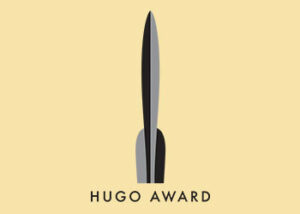 Hugo Award (finalist)
Hugo Award (finalist)2011
Nominated for Robert A. Heinlein: In Dialogue with His Century: Volume 1 (1907-1948): Learning Curve.
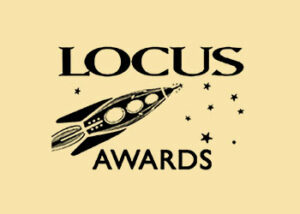 Locus Award (finalist)
Locus Award (finalist)2011
Nominated for Robert A. Heinlein: In Dialogue with His Century: Volume 1 (1907-1948): Learning Curve.
 Cabell Prize
Cabell Prize2000
For the essay “The Heir of James Branch Cabell: The Biography of the Life of the Biography of the Life of Manuel (A Comedy of Inheritances)”.
News, Views, and Reviews
 Book Review: ‘Robert A. Heinlein’ by William H. Patterson Jr. (note: gated content)
Book Review: ‘Robert A. Heinlein’ by William H. Patterson Jr. (note: gated content)by Lee Sandlin
The Wall Street Journal · Jun 27, 2014
 Patterson speaks at the Cato Institute (PDF)
Patterson speaks at the Cato Institute (PDF)Cato Policy Report · Jan–Feb 2011
“William H. Patterson, Jr., editor and publisher of The Heinlein Journal, discussed his new biography, Robert A. Heinlein: In Dialogue with His Century, at a Cato Book Forum on October 21…”
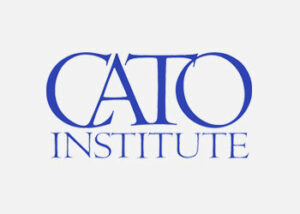 Robert A. Heinlein: In Dialogue with His Century (Cato Institute Book Forum, 2010) (YouTube)
Robert A. Heinlein: In Dialogue with His Century (Cato Institute Book Forum, 2010) (YouTube)Cato Institute · Jun 2011
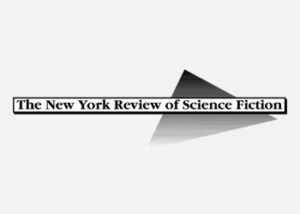 Heinlein: The Grand Prototype
Heinlein: The Grand Prototypeby Arthur D. Hlavaty
The New York Review of Science Fiction · Jul 12, 2014
“The Patterson bio… is thorough and detailed, with a remarkable amount of information about an essentially private and even secretive subject. It leaves us far more able to understand the complex man who wrote the books…”
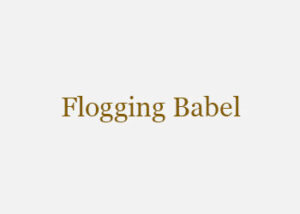 Thinking About Heinlein
Thinking About Heinleinby Michael Swanwick
Flogging Babel · Mar 9, 2011
“It’s a book that makes me like Heinlein the man a lot more than I expected it would.”
 Briefly Noted: The Origins of Heinlein
Briefly Noted: The Origins of Heinleinby Brian Doherty
Reason · Mar 2011
“Patterson says Heinlein galvanized four movements: science fiction, the counterculture, libertarianism, and commercial space travel.”
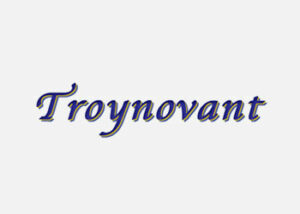 The man who learned better
The man who learned betterby Robert Wilfred Franson
The Troynovant · Feb 2011
“This biography is among the most significant books about science fiction that we will ever read.”
 The Heinlein Biography Approacheth: An Announcement, some Pointers, and a digressive Disquisition on the Nuanced Differences between two Web Sites sharing in common a certain Widely-Recognized Brand
The Heinlein Biography Approacheth: An Announcement, some Pointers, and a digressive Disquisition on the Nuanced Differences between two Web Sites sharing in common a certain Widely-Recognized Brandby Patrick Nielsen Hayden
Tor · Jul 15, 2010
 Review of “Robert A. Heinlein,” by William H. Patterson, Jr.
Review of “Robert A. Heinlein,” by William H. Patterson, Jr.by Michael Dirda
The Washington Post · Aug 12, 2010
“Today, most readers regard the 1940s stories and the juveniles and short novels of the 1950s as Heinlein’s best work. If you’re a fan of these, you’ll want to read Patterson’s biography.”
 SFRevu: Robert A. Heinlein: In Dialogue With His Century: Volume 1 (1907-1949): Learning Curve by William H. Patterson
SFRevu: Robert A. Heinlein: In Dialogue With His Century: Volume 1 (1907-1949): Learning Curve by William H. Pattersonby Michael Walsh
SFRevu · Aug 17, 2010
“Bottom line: If you have any interest in the SF genre this is a book to own.”
 Robert A. Heinlein: Grand Master
Robert A. Heinlein: Grand Masterby Mark Tiedemann
Distal Muse · Sep 9, 2010
“Patterson achieved the remarkable goal of demythologizing the man without gutting him.”
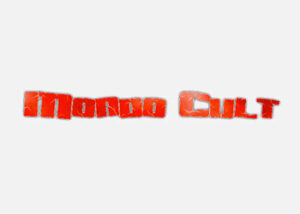 Bill Patterson: InDigestion with his Culinary
Bill Patterson: InDigestion with his Culinaryby Dafydd ab Hugh
Mondo Cult · 2015
A remembrance: “Bill was a completist, which meant including every last tot and jittle his copious research revealed, trivia vying with vital information for space in the writing. Most authors overwrite, then pare back. Bill was the only writer I’ve known whose every later draft expanded the manuscripts by orders of magnitude… I regret I never had the chance to write a review of the Heinlein biography. How I longed to eviscerate, defenestrate, and armageddonate that book, no matter how brilliant the damn thing was! RIP, Bill; not surprisingly, you leave a mighty big hole.”
 The Making of a Libertarian
The Making of a Libertarianby William Alan Ritch
Mondo Cult · 2010
“The volume demonstrates its subtitle (Learning Curve) over and over. Heinlein is constantly learning just as our country was learning through its experiences, with two world wars and two international movements…”
 Looking Back at the Sunset
Looking Back at the Sunsetby William Alan Ritch
Mondo Cult · 2015
“This book is not an exposé. There is no attempt to find its subject’s feet of clay. There are no shocking revelations. Patterson is not writing a literary criticism. He is a biographer — not a critic.”
 Heinlein’s Conservatism
Heinlein’s Conservatismby Martin Morse Wooster
The National Review · Oct 25, 2010
“Heinlein’s political evolution was somewhat comparable to that of Ronald Reagan. Until the 1950s, Heinlein thought of himself as a liberal. After 1945, he thought that the only way to prevent global atomic annihilation was a strong world government.”
 Space Cadets and Starship Troopers: The Eagle Has Landed
Space Cadets and Starship Troopers: The Eagle Has Landedby Stacy Hague-Hill
Tor · Oct 6, 2010
“In celebration of the man and his works, we asked a number of sf writers to tell us which Heinlein novel is their favorite, and why. We were lucky enough to get a host of great authors, including: David Brin, David Drake, David G. Hartwell, L.E. Modesitt, Jr., Rudy Rucker, Joan Slonczewski, Charles Stross, Michael Swanwick, and Vernor Vinge.”
 Robert A. Heinlein: The Tor.com Blog Symposium
Robert A. Heinlein: The Tor.com Blog Symposiumby Patrick Nielsen Hayden
Tor · Aug 11, 2010
“We’ve convened a kind of online panel discussion of Heinlein and of the biography — of his work, his methods, and his legacy, and of what light the biography sheds on all of those…”
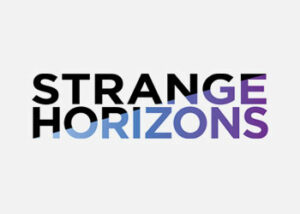 Evaporating Genres
Evaporating Genresby Gary K. Wolfe
Strange Horizons · Jul 22 2013
“William H. Patterson, Jr.’s intensely researched biography of the central shaper of modern American SF…”
 Book Note: William H. Patterson, Jr., Robert A. Heinlein: Learning Curve (1907-1948)
Book Note: William H. Patterson, Jr., Robert A. Heinlein: Learning Curve (1907-1948)by David Dyer-Bennet
DD-B Book Notes · Jun 25, 2010
“This book seems to me…neither sensationalized, nor overly protective…”
 Book Note: Robert A. Heinlein, Robert A. Heinlein: The Man Who Learned Better (1948-1988)
Book Note: Robert A. Heinlein, Robert A. Heinlein: The Man Who Learned Better (1948-1988)by David Dyer-Bennet
DD-B Book Notes · Jun 20, 2014
“I was raised by Heinlein and Doc Smith as much as by my parents, and have read everything over and over again…”
 Book Note: William H. Patterson, The Martian Named Smith
Book Note: William H. Patterson, The Martian Named Smithby David Dyer-Bennet
DD-B Book Notes · Aug 2, 2001
“If you’re interested in where Stranger in a Strange Land came from and something about how Heinlein did it, this book has a lot to offer.”
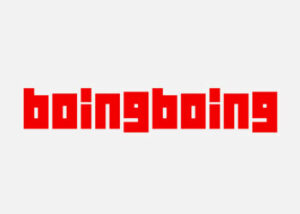 Notes on the upcoming monster-sized authorized Heinlein biography
Notes on the upcoming monster-sized authorized Heinlein biographyby Cory Doctorow
BoingBoing · Jul 15, 2010
“It’s exhaustive and often exhilarating…”
 Heinlein memoir: Learning Curve – the secret history of science fiction
Heinlein memoir: Learning Curve – the secret history of science fictionby Cory Doctorow
BoingBoing · Aug 16, 2010
“Patterson isn’t just aiming to be a detective of Heinlein’s life: he’s seeking out the inspiration, situational and philosophical, behind Heinlein’s fiction, and the carefully traced pathways from Heinlein’s boyhood and adolescence into his career as a writer are peppered with Aha! moments as the origins of his best-loved work are revealed…”
 Review: Robert A. Heinlein In Dialogue With His Century, The Authorized Biography, Volume I: Learning Curve (1907-1948)
Review: Robert A. Heinlein In Dialogue With His Century, The Authorized Biography, Volume I: Learning Curve (1907-1948)by Jeane Griggs
Necromancy Never Pays · Jul 21, 2010
“I love the way Patterson inserts letters written by Heinlein into his narrative, telling, for instance, about a period in which he was confined to bed and quoting from a letter describing this period years later, to show why he came up with the idea for the waterbed…”
 Review: Robert A Heinlein: In Dialogue with His Century Volume 2: The Man Who Learned Better 1948-1988
Review: Robert A Heinlein: In Dialogue with His Century Volume 2: The Man Who Learned Better 1948-1988by Hal C F Astell
The Nameless Zine · 2014
“If Heinlein learned a lot during this period, I learned a lot reading about it. I’ve read all his fiction, so discovering how it came about and how it evolved was fascinating. This book highlighted to me that I need to revisit some key titles which have faded a little from my memory, especially the big later books…”
 Review: Robert A. Heinlein Was A Dick…A Review of Patterson’s Bio, Volume 2
Review: Robert A. Heinlein Was A Dick…A Review of Patterson’s Bio, Volume 2by Steve Davidson
Amazing Stories · Jun 2014
“Numerous passages in Patterson’s bio recount Heinlein’s establishment of professional guidelines and proper behavior…and yet, on at least one notable occasion, he roundly broke those rules and seemingly made no bones about it.”
 A Famous Science Fiction Writer’s Descent Into Libertarian Madness
A Famous Science Fiction Writer’s Descent Into Libertarian Madnessby Jeet Heer
The New Republic · Jun 8, 2014
 The Many Robert Heinleins We Remember
The Many Robert Heinleins We Rememberby James W. Harris
Jun 23, 2014
“After reading this large, two-part biography, I realize it was probably well that I never got to meet my prophet face to face, or even correspond with him. Heinlein was overwhelmed by his followers, and he really didn’t need another sappy fan bugging him, plus I probably would have pissed him off with my politics and beliefs…”

